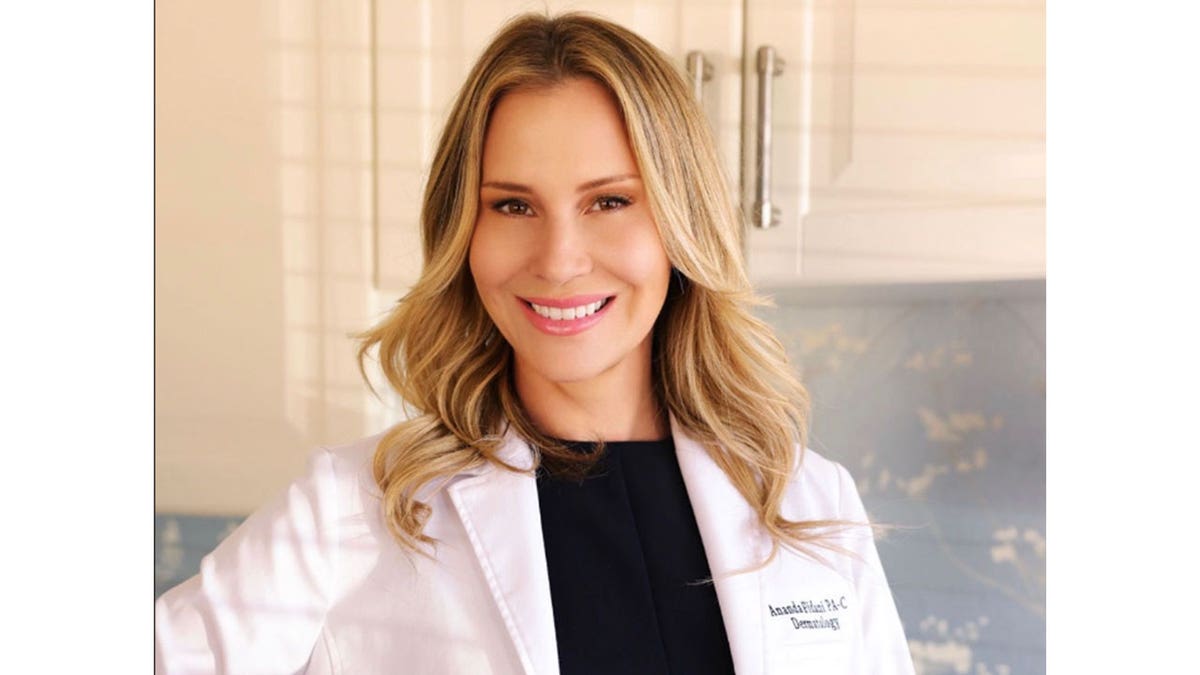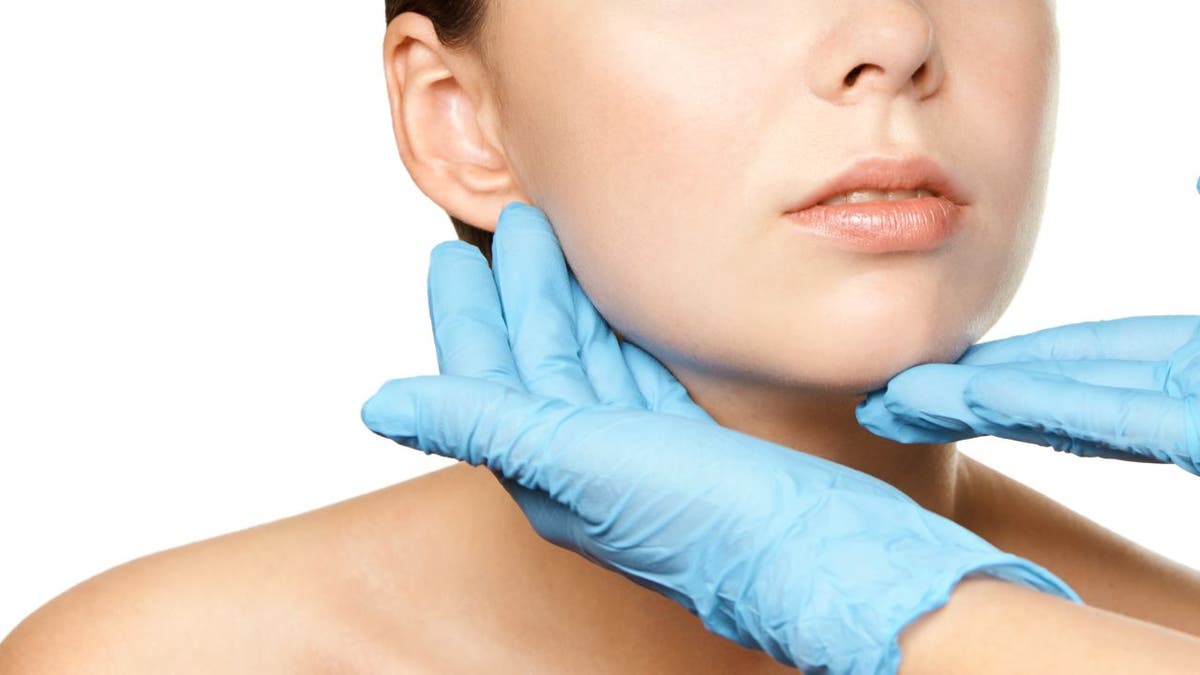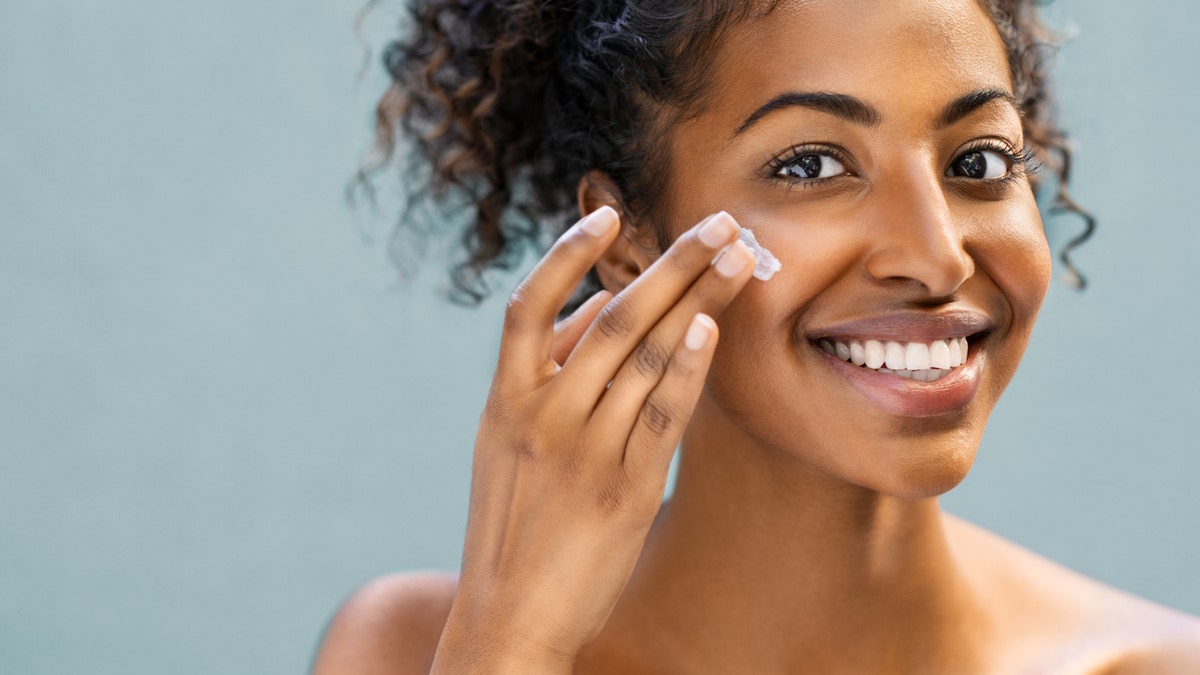Retinoids are a very confusing topic, even for some dermatologists and skin care experts.
Retinoid is the catch-all term used by professionals for skin care products that fall under this category.
Retinol is most commonly found in an over-the-counter product, and Retin-A is the branded retinoid.
ASK A DOC: ‘DO I NEED TO WASH MY FACE EVERY NIGHT?’
Tretinoin is the generic retinol that you can only gain access to through prescription, and Isotretinoin is the oral form of retinol.
Despite the confusion and variety of terms used to refer to the products, they are very useful and widely explored by consumers and recommended by specialists.

Skin expert Ananda Fidani of California said Retin-A and sunscreen are the "golden" products in terms of anti-aging. (Ananda Fidani)
"Retinoid is a great medicine that has many reasons to use it," Ananda Fidani, a skin expert and founder of Rivier Aesthetics in California, told Fox News Digital.
"There are many therapeutic uses, though the primary use of retinol is for treating acne and conditions of the skin."
The vitamin A-based products, including retinol and Retin-A, are used to treat precancerous conditions of the skin, effects of anti-aging, acne and more.
"For acne, it reduces the oil gland production called sebum," Fidani said. "Rejection of the oil glands makes the pores seem smaller. And it increases collagen production."
Collagen is a protein that makes up 30% of the body’s enzymes, according to the Cleveland Clinic.
The body produces less collagen as it ages and nasty habits like sunbathing and smoking speed up the process of collagen forfeiture.
Then, the skin experiences a loss of elasticity — which erects fine lines and wrinkles.

"It’s important to consult your doctor or skin care specialist before using a retinoid," said one skin care expert. (iStock)
Because of this, it is a common practice, especially among women, to incorporate skin care routines that boost collagen production in the body.
"Retin-A makes your skin look luminous and gorgeous," Fidani said. "It’s important to know it’s not thinning your skin overtime. You’re banking collagen, so it’s a great way to be anti-aging."
Despite what has been found via social media as of late, she said retinoid products are safe for young consumers, too.
"It’s absolutely safe to use Retin-A for acne when you’re young," Fidani said. "You must use it correctly, though. That’s the most important thing. You can use it in your early 20s and late teens for beautiful skin — you just have to be safe and educated."
HOW TO WEAR SUNSCREEN THE RIGHT WAY: YOUR GUIDE TO SPF
She advises retinoid users to be cautious while introducing these products to their skin. Start slow by using one to two times per week at night, she said.
Then, work up to using the products for five to seven days, again, in the evening, once your skin has become accustomed to the products. It is important to use the products at night as exposure to UV light can render the ingredients inactive.

Consumers should also keep in mind that retinoids can make the skin more susceptible to sunburn, said one skin care expert. (iStock)
Users of retinoid products may experience redness, irritation, slight peeling and stinging.
"Stinging is sort of normal, so push through it as long as you’re not under severe distress," Fidani said. "But it’s important to consult your doctor or skin care specialist before using a retinoid."
Consumers should also keep in mind that retinoids can make the skin more susceptible to sunburn.
"At a young age, you can do some serious damage to your skin," she said. "It’s important to wear sunscreen when using Retin-A. You should also not wax your face as it makes your skin a little bit more fragile and sensitive."
Fidani said the "golden rule for anti-aging" is a simple combination of Retin-A and sunscreen.
Users of retinoid products should also refrain from eyebrow or lip waxing. However, Fidani said that eyebrow threading is fine.
She also suggested that retinoid products should not be used by women who are pregnant, trying to get pregnant or breastfeeding.
As for where to incorporate retinoid into your regime, Fidani recommended starting from the thinnest to thickest products.

Users should be advised that employing too many products at once could not only overdo it — but also reverse the benefits of each product. (iStock)
"First cleanse, then use a serum or toner," she said. Fidani likes to make a paste with retinol and moisturizer, she said.
Then, after applying, she tops with more moisturizer before hitting the sheets. "I like to use the Retin-A to dilute the moisturizer."
Users should be advised, though, that employing too many products at once could not only overdo it, but also reverse the benefits of each product.
CLICK HERE TO SIGN UP FOR OUR LIFESTYLE NEWSLETTER
"Retinoid is inactivated by benzoyl peroxide," she said. "In a general sense, they shouldn’t be used together. When people use too many products, they can experience skin irritation. I call retinoid the bully on the block, meaning it fights with other things, and it’s reactive."
One skin care myth that Fidani said she's determined to debunk is that retinoids thin the skin, something she said she "hears" all the time.
CLICK HERE TO GET THE FOX NEWS APP
Fidani said this is absolutely not the case.
"The dermis becomes thicker," she said. "Your epidermis, which is the uppermost layer, will become peely, but it doesn’t thin your skin. Your skin renews itself."
Fidani said the "golden rule for anti-aging" is a simple combination of Retin-A and sunscreen. And for those looking for a plant-based solution like a retinoid, Fidani recommends Bakuchiol.
For more Lifestyle articles, visit www.foxnews.com/lifestyle.










































